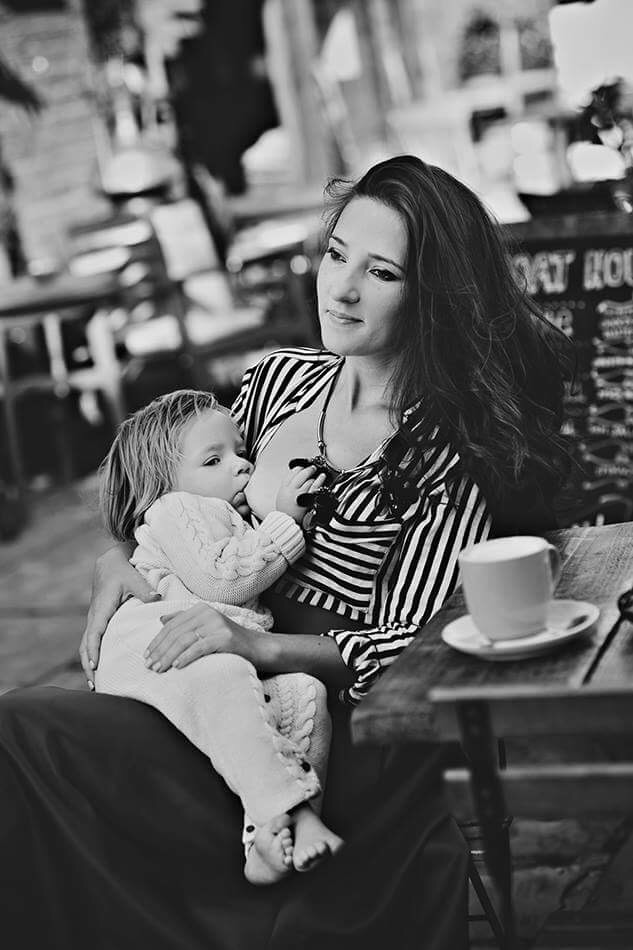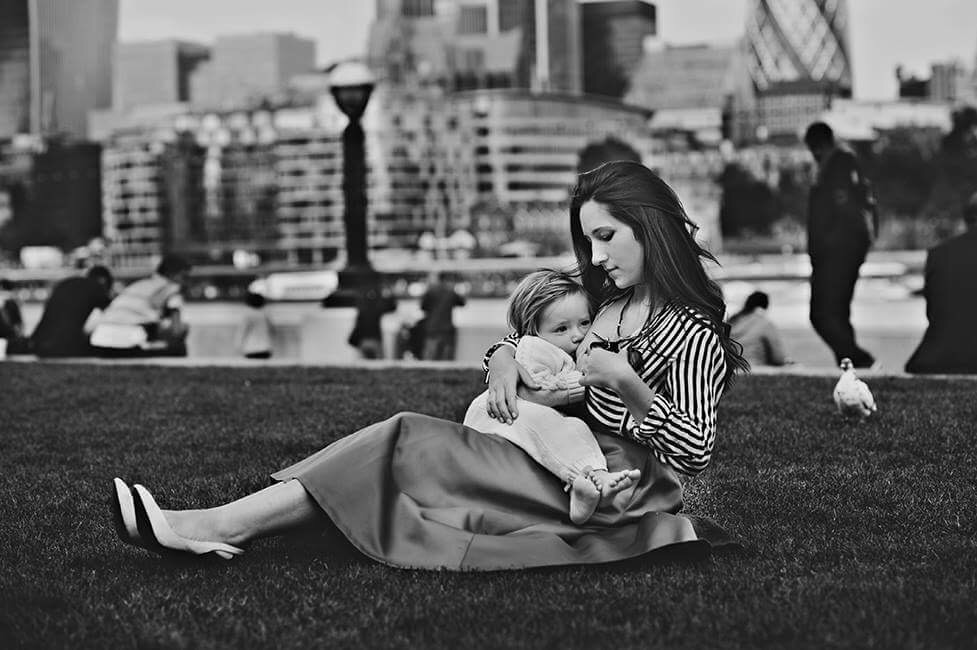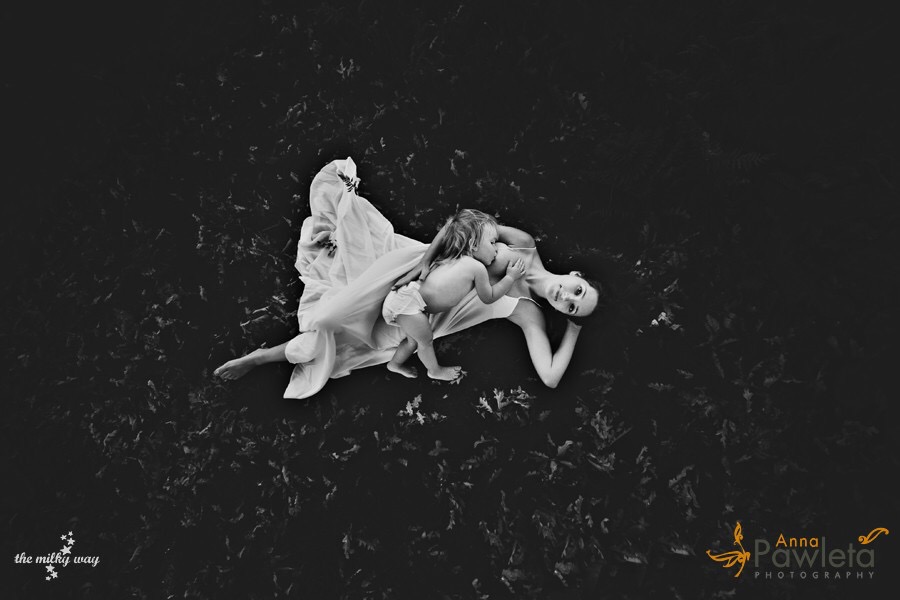…or I could easily name this article breastfeeding an older child can be an isolating experience…if you let them get to you…
When a mother is breastfeeding she should know that the baby is completely dependent on her for both food and confort. This may frighten individuals in cultures that place a high value on self-sufficiency and here goes the unfair question that temporarily broke me, the keen chooser of extended breastfeeding. I have spent days researching on how to un-breastfeed a baby or in my case, a toddler. Not much showed up in the almighty Google, or should better stated, nothing relevant or too useful, but a few cold frigid tips I could have come up with myself. I will share though the few uncool lessons I got the hard way, yet the few good ones too that got me to the stage of re-living it all through writing this. But first things first…
Despite many cold glances, cold shoulders and a lot of unsolicited critique, yet a fair share of unexpected support from the most unexpected individuals, I happened to enjoy breastfeeding a (which eventually turned out to be), giant massive cyclopian toddler (thanks to Thesaurus for helping me make an obvious point here) compared to the tiny creature that landed in my arms 26 months before the sour end of our breastfeeding business. I wrote about all the lessons I learnt from this glorious bond in my previous post on 12 cool lessons I learnt from breastfeeding my toddler and I meant. every. single. word. But that was just half a year before the process got harder and harder and harder and harder and…harder until (not for a enough good reason) I decided to quit.
___________________________________________________________
1.’When’ to stop is none of their business…
_____________________________________________________________
When we start our nursing journey, do we all know that the natural weaning age for children worldwide ranges from around 2.5 to 6 years old with the average being around 4 to 5? According to La Leche League (which was almost my only source of relevant information and help), all babies self-wean on their own at a pace and time that suits their individual needs. The antenatal leaflets do briefly mention the World Health Organisation which recommends that the infants should be exclusively breastfed for the first six months of life in order to achieve optimal growth, development and health. Afterwards, to meet their evolving nutritional requirements, infants should receive nutritionally adequate and safe complementary foods while breastfeeding continues for up to two years or beyond. Then why do we tend to judge each other on not breastfeeding enough or going to the opposite end: why not stopping after a certain amount of time?
_____________________________________________________________
2. Criticism can harm self confidence, don’t let it get to you…
_____________________________________________________________
The major contributors to the premature weaning must be cultural. If I start analysing the preconceptions many have on the breastfeeding in public affair to the way breasts are mainly portrayed more as sexual objects than feeding source, I come to the conclusion that no matter how much they don’t wish to get you upset or judge you, most people (including my own mum and most friends) react as both culture and knowledge dictate them to: it’s rather odd to breastfeed a two or a three year old when not many other people seem to do it. Not to mention a four year old almost ready for school, God forbid, what would the neighbour you never spoke to in your life say about a taking child attached to his mum’s chest?! Yet this is your experience, your judgment, your call. Stopping should’t be any different. Any criticism should be completely ignored, although it’s not always the easiest task…

__________________________________________________________
3. ‘How’ to stop is a journey rather than an overnight decision. Make it yours.
___________________________________________________________
Discard any pushy suggestions from any of your friends or even family. One of the only articles that actually brings a bit of light on the how to stop options is from Kelly Mom and she is letting you decide which one could work best for you: the don’t offer, don’t refuse trick, dropping one feed at a time, distraction or substitution, changing the routine, postponement, shortening nursing sessions, night weaning etc. I wish I had looked into these options more before sinking deeper in my meltdown while failing to listen to my own gut. You don’t just stop, I embraced the cold turkey strategy after 26 months of breastfeeding and boy, didn’t I have to pay a price despite the great job cabbage leafs had done for my chest during the three days of nightmare pain and fear of mastitis? The toddler was beyond confused, woke up more often during the night, required more comfort and had no intention leaving the confort of sucking reflex although my milk had dried out.
____________________________________________________________
4. Quitting doubts? Do not ignore.
____________________________________________________________
Let’s explore the reasons women give up breastfeeding: it’s painful – cracked nipples and mastitis are not fun, sometimes going back to work is not the smoothest transition, poor support from either family or medical institutions, milk supply runs out etc. Stopping breastfeeding should be as natural as starting it, yet the way I eventually did it felt so unnatural and wrong. Why? Because I did not listen to my gut as I did for the past couple of years, but instead gave in and went cold turkey as a few people strongly suggested, most of them dear, yet holding on a very straightforward opinion on how toddlers should not be breastfed this long.

_______________________________________________________
5. Finding the right support is sometimes the only fixer you’ll need…
_________________________________________________________
I’ll share here a little paragraph from an email conversation I had with La Letche League after I told them that I suddenly stopped breastfeeding due to both physical and mental pressure while I was fighting a clingy toddler who all he wanted for the confort of the breast: ‘You write that breastfeeding now feels unnatural to you, and this is a common problem for mothers in western culture. You might well find it supportive and encouraging to attend a La Leche League meeting. Many mothers find the support of other nursing mothers tremendously helpful, informative and reassuring. LLL Groups give mothers the opportunity to meet up, share their experiences and make friends. You are probably aware that the World Health Organisation’s advice on breastfeeding is that it should continue for two years and beyond. Many mums who choose to follow this guidance find LLL meetings a helpful support, where breastfeeding through toddlerhood is encouraged and not viewed as unnatural.‘

‘Breastfeed like no one is watching’ – was my very first breastfeeding tip I shared while I was enthusiastically embracing the journey’s mad but rather wonderful vibes (not because you’re not supposed to be watched, but you can’t always be stuck to your sofa at home with the windows’ blinds on, fearing the public eye that might or might not judge you).
Thank you again for the lovely visual aids Anna Pawleta Photography. Shoots with you are alway fun!




